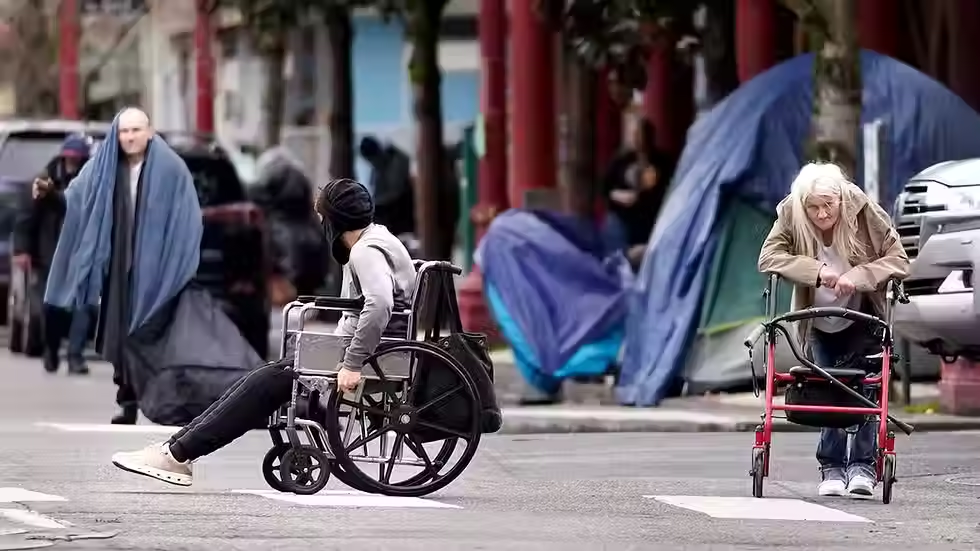"Due to Unforeseen Funding Issues..."
- Lois Curtis Center

- Mar 17, 2025
- 3 min read
Updated: Aug 3, 2025
We are, at present, in the midst of an unprecedented rollback of federal funding that is sending shockwaves throughout academia, the arts/humanities, human services, and other industries that either intersect or have adjacency to the nonprofit sector in the US. Grants and contracts are being suspended or outright terminated, which, in turn, is leading to entities that receive federal funding to halt their operations, lay off staff, rescind offers of admission, or outright close their doors.
All in all, the general public is sympathetic to the plight of the people seemingly caught in the crosshairs as the DOGE rampages through the US government. For many, the desire to financially support entities that are experiencing financial instability to ensure that they are able to maintain their ability to attend to their day-to-day operations. This shouldn’t be surprising because here are few actions in our society that are more celebrated than when an individual makes a charitable contribution to a “worthy cause”. The recipient entity can openly revel in their role as beneficiary of generosity with no concern about being stigmatized. On the contrary, entities that receive a donation from one individual are likely to receive additional donations from others within that individual’s network. This can lead to substantial funds development if said individual donor has a large platform. All in all, nonprofit organizations in the US received $319.04 billion dollars from individuals in 2023; academic institutions, in turn, received $20.3 billion dollars from individuals.
It’s almost universally accepted that many entities in the US are “dependent” on federal funding, individual donations, and other forms of giving in order to function. To the majority of people, it makes sense to support such organizations to ensure that they are able to “keep the lights on”, so to speak. This is true despite the fact that nearly a majority of Americans no longer feel that a four-year degree leads to career success. Additionally, although the US Department of Health and Human Services (HHS) gave $1.07 trillion of funding (including Medicaid funds to US states and territories) via grants, contracts, and subcontracts to over 143,000 human service providers, ample evidence indicates that social determinants of health in the US are in decline.
Contrast all of this with how our society treats people in poverty- instead of federal grants, contracts, and other forms of cash-based aid that nonprofit and similar organizations have, until recently, taken for granted as reliable revenue streams, federal aid for people in poverty typically manifests in rigid programs that are maternalistic, stigmatizing, bureaucracy-laden, and, more often than not, not relevant to their needs. Like “financial literacy” programs, for instance, which operate under the assumption that people in poverty are poor because they fail to manage money effectively, not because the system depends on the oppression of many, including them, for the benefit of few.
Such programs persist, despite the fact that, like the nonprofit sector- as well as the corporate sector, which also receives hundreds of billions in federal direct aid every year (as well as the indirect support corporations like Walmart and McDonald’s receive as a result of compensating employees at such a low rate that many are eligible for food stamps and Medicaid, despite working full time…) people in poverty are best assisted out of poverty through direct, cash interventions, NOT useless, bureaucracy-riddled programs.
People oppressed by the system to the point of living in poverty are expected to pull themselves up by their bootstraps. Meanwhile, the entities that oppress them- or purport to soften the blow of oppression they experience via “programs” and other “supports”- are assured the warm embrace of socialism. Individuals have been socialized to perceive that giving cash to a poor person will “create dependency” while giving cash to a philanthropic organization will “create community”. Poor people are judged are stigmatized when there’s “still month at the end of the money” and they are left with no choice but to secure a payday loan or “panhandle”; banks (including nonprofit/tax exempt credit unions), on the other hand, can almost always count on a federal bailout when they run short on cash as the result of their poor financial decisions.
Ultimately, every person and every entity is dependent in a system of oppression, including the most privileged and powerful. In fact, it could be argued that they are the most dependent, as their financial success is squarely contingent on the oppression and exploitation of others. Others who, perversely enough, are judged and condemned by the same people benefit from their exploitation. And, as we as a society grapple with the potential and actual defunding of so many institutions that we hold dear, it would be prudent to keep in mind that a people who refuse to proactively dismantle a system that has, time and time again, been proven to be dehumanizing to others will be forced, eventually, to experience it dehumanize them.



Comments